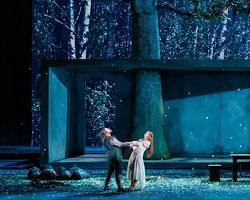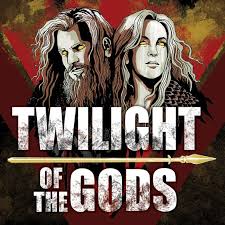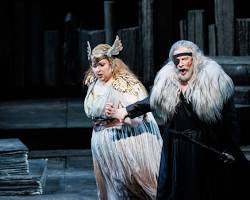By Charles P Arden
The Atlanta Opera is preparing to conclude its Ring cycle with Richard Wagner's Götterdämmerung. This production marks the completion of the company's multi-season presentation of the Ring des Nibelungen.
Presented as Twilight of the Gods, this new production is led by General & Artistic Director Tomer Zvulun. Performances are scheduled to run from May 30 to June 7, 2026, as part of the company's 2025-26 season. The opera will be performed at the Cobb Energy Performing Arts Centre.
The cast for this final instalment features Stefan Vinke, Lise Lindstrom, and Morris Robinson. Their participation indicates the scale of the production as the company brings the Ring to its conclusion.
Single tickets are now available.
For more details and ticket information, please visit the official
The Story So Far
Das Rheingold (2023)
The cycle began with Das Rheingold in 2023, marking the first time this opera had been produced in Atlanta. Critics lauded it as an "ambitious, glorious" and "splendid production," quickly cementing The Atlanta Opera's status as a "world-class company." The production, designed by Erhard Rom (scenic and projections) and Mattie Ullrich (costumes), was noted for its blend of contemporary and traditional elements. Rom's vision of Valhalla as "two soaring modern skyscrapers" and Ullrich's costumes, mixing "long robes" for gods with "earth tones" for Nibelungs and even "horned headgear," evoked both timelessness and modern relevance. Director Tomer Zvulun was praised for bringing "compelling dynamism" to a work that can often seem static, even embracing its occasional humorous moments.
Key vocal performances were highlighted, with veteran Wagnerian Greer Grimsley as a "superb Wotan," delivering a "commanding presence and sonorous voice." Richard Cox was noted for a "suave, sly account" of Loge, and Zachary Nelson provided a "vocally and dramatically assertive Alberich." The Rhinemaidens were also singled out for their "luminous" quality. Conductor Arthur Fagen drew "balanced and burnished playing" from the orchestra, though some critics yearned for more bite from the brass in climactic moments. Despite minor staging quibbles, the overall reception affirmed an auspicious start to the cycle.
Die Walküre (2024)
Following its successful prelude, Die Walküre took the stage in 2024. This production was hailed as a "musically sumptuous" event, showcasing "high musical values and piquant performances." It was particularly significant as the first new Ring cycle production to premiere in the U.S. post-pandemic. Zvulun's staging was recognized for its "lucid storytelling," making it accessible for newcomers, though some seasoned Wagnerians found it "old-fashioned" in its theatricality. Sets by Erhard Rom, relying heavily on projections, aimed for a "timeless" setting but sometimes led to a "lack of subtext or subtlety."
The casting was a major strength. Christine Goerke, stepping in as Brünnhilde, was described as "tremendous" and "perhaps the greatest Brünnhilde of our times," her voice ringing out with "gleaming sound" that never tired. Greer Grimsley returned as Wotan, displaying a wider dramatic range as the "tortured king of the gods," with his "sonorous bass-baritone" still commanding. Laura Wilde as Sieglinde made a "stunning Atlanta Opera debut," and Viktor Antipenko as Siegmund demonstrated a "lyricism combined with heroic heft." While elements like projected computer-designed horses for the "Ride of the Valkyries" drew mixed reactions, Arthur Fagen's conducting was largely praised for maintaining "excellent balance" and "gorgeous Wagner" sonorities.
 |
Siegfried (2025)
The penultimate opera, Siegfried, was presented in 2025 and described as a "stirring, heroic triumph." The production was lauded for its ability to balance epic heroism with elements of fairy tale and even comedy, a credit to both director Tomer Zvulun and the cast.
Stefan Vinke, globally renowned for the role, was a standout as Siegfried, capturing the hero's "wide-eyed innocence" and displaying "tremendous vocal power, stamina and range." His portrayal was noted for its remarkable youthfulness despite his veteran status. While Greer Grimsley (as the Wanderer/Wotan) faced some allergy issues on opening night, the production maintained its vocal strength, with Kyle Albertson stepping in and Lise Lindstrom delivering an "electrifying" Brünnhilde, her "laser-focused soprano" culminating in a "glorious high C." Rodell Rosel as Mime was praised as a "nimble singing actor" who captured the dwarf's cunning.
The visual design, again by Erhard Rom and team, was "visually arresting," with industrial designs for Mime's forge contrasting with "bright bucolic" settings. Roberto Kalb's conducting was noted for maintaining "brisk momentum and a careful balance," avoiding any "longueurs" often associated with Siegfried. The decision to include an extended dinner intermission, akin to Bayreuth, was also appreciated by audiences.























